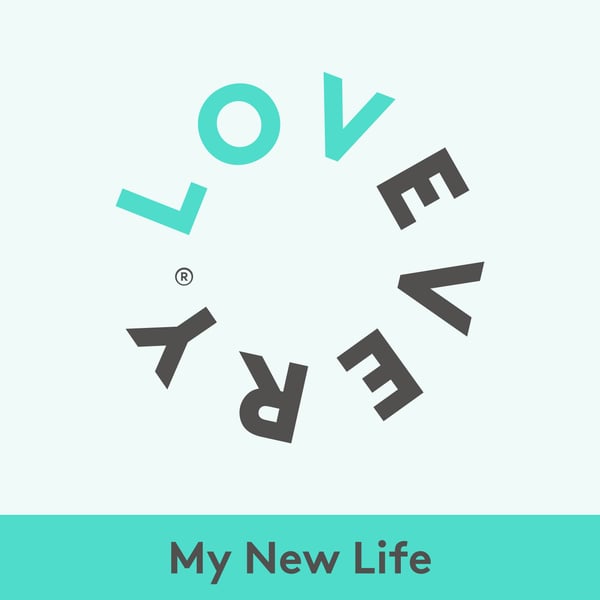The Benefits of Unstructured Play
My New Life
Kate Garlinge
4.7 • 654 Ratings
🗓️ 26 August 2020
⏱️ 23 minutes
🧾️ Download transcript
Summary
With opportunities for social interaction outside the family in short supply, many parents are stepping in as their child’s primary playmate. Is one way of playing better than another? In this episode with Dr. Shimi Kang, host Jessica Rolph explores the benefits of unstructured play and looks at how play prepares us for adulthood.
Dr. Kang is a Harvard-trained psychiatrist, neuroscientist, and best selling author. She is the author of The Dolphin Parent: A guide to Raise Healthy, Happy and Self-Motivated Kids, and her newest book The Tech Solution: Creating Healthy Habits for Kids Growing Up in a Digital World.
Key Takeaways:
[1:35] How did Shimi’s upbringing inform her work around play?
[3:17] Why is play such an important piece of childhood from a research perspective?
[6:10] We are hardwired to play.
[6:36] Shimi discusses a fascinating study that involves rats — play is crucial to their survival.
[7:50] How does play help children adapt to stress and emotionally process new experiences?
[9:18] Shimi explains the difference between free play and guided play. Why might parents want to emphasize one approach over the other?
[11:19] Why toddlers benefit from unstructured activities.
[13:04] How can we tell if our toddlers are over-stimulated or overwhelmed?
[14:45] How much should parents get down on the floor with their children, or should parents play the role of observer?
[15:48] Do children need their parents to help scaffold pretend play?
[17:26] Tips for parents who want to give their children more freedom to play.
[18:55] The challenges of being mindful of technology and how it is impacting parents’ relationships with their children.
[21:03] Jessica shares her takeaways from the conversation.
Mentioned in this episode:
Brought to you by Lovevery.com
Learn more about Dr. Shimi Kang
The Dolphin Parent: A guide to Raise Healthy, Happy and Self-Motivated Kids, Dr. Shimi Kang
The Tech Solution: Creating Healthy Habits for Kids Growing Up in a Digital World, Dr. Shimi Kang
Transcript
Click on a timestamp to play from that location
| 0:00.0 | Parenthood is a time of so much change for you and your baby. |
| 0:12.8 | A little reliable information can go a long way towards making this new life a good life. |
| 0:18.6 | I'm Jessica Rolfe, and this is my new life, a love every podcast. |
| 0:28.9 | My family and I spent last weekend camping in the mountains in Idaho. One of my favorite things |
| 0:34.3 | about being in the outdoors is watching my kids create fantasy worlds amongst |
| 0:38.2 | the trees. Sticks become wands, branches transform into shelters, and hours can pass foraging |
| 0:44.5 | for just the right potion ingredients. It's imaginative play at its most elemental. |
| 0:50.8 | Chances are, if you're listening to this, you know how important play is to your child's development. |
| 0:56.1 | But why? What is happening to our brains when we play? And how does it help prepare our young |
| 1:01.3 | children for success later in life? For answers to these questions, I am joined by Harvard-trained |
| 1:07.3 | psychiatrist, neuroscientist, and best-selling author Dr. Shimmie Kang. |
| 1:13.0 | She is the author of The Dolphin Parent, a guide to raising healthy, happy, and self-motivated |
| 1:18.8 | kids. In her newest book, The Tech Solution, Creating Healthy Habits for Kids Growing Up in a Digital |
| 1:24.9 | World. Hi, Shimi. It's so great to have you here. Hi, Jessica. |
| 1:30.2 | So you are the daughter of immigrant parents. How did your upbringing inform your work around |
| 1:35.4 | play? Well, my parents, they're very interesting parents. They were both hardworking immigrants. |
| 1:40.9 | My mom actually couldn't read. She's illiterate. So she was very hands-off, I guess, |
| 1:46.6 | with school. She couldn't micromanage my homework, of course, but she always sent the message |
| 1:51.5 | that, you know, to work hard and explore the environment. You know, as immigrants, I think they |
| 1:57.2 | were into exploration. And I think that really helped inform my play, my learning through trial and error, |
| 2:05.1 | my having unstructured free time. |
| 2:07.8 | I wasn't in a single extracurricular activity. |
... |
Please login to see the full transcript.
Disclaimer: The podcast and artwork embedded on this page are from Kate Garlinge, and are the property of its owner and not affiliated with or endorsed by Tapesearch.
Generated transcripts are the property of Kate Garlinge and are distributed freely under the Fair Use doctrine. Transcripts generated by Tapesearch are not guaranteed to be accurate.
Copyright © Tapesearch 2025.

